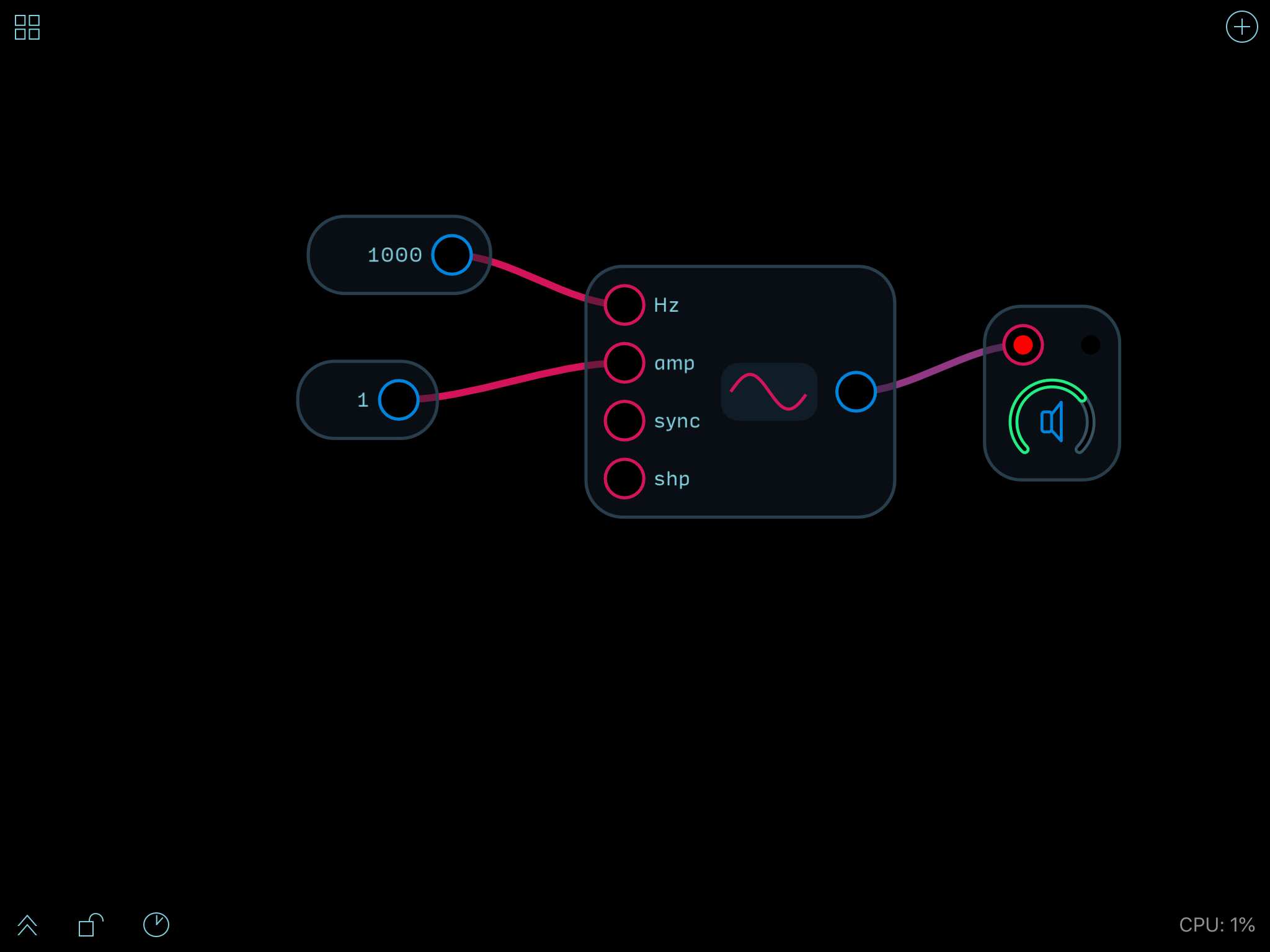Loopy Pro: Create music, your way.
What is Loopy Pro? — Loopy Pro is a powerful, flexible, and intuitive live looper, sampler, clip launcher and DAW for iPhone and iPad. At its core, it allows you to record and layer sounds in real-time to create complex musical arrangements. But it doesn’t stop there—Loopy Pro offers advanced tools to customize your workflow, build dynamic performance setups, and create a seamless connection between instruments, effects, and external gear.
Use it for live looping, sequencing, arranging, mixing, and much more. Whether you're a live performer, a producer, or just experimenting with sound, Loopy Pro helps you take control of your creative process.
Download on the App StoreLoopy Pro is your all-in-one musical toolkit. Try it for free today.
How to create a clean Sine sweep from 20 to 22 kHz?
The user and all related content has been deleted.


Comments
I’d use Wave Editor in the desktop, it has a generator function for creating just these sorts of things.
Should be piece of cake with Audulus. Oscillator, Envelope generator (it has one, right?), and routing that to Hz...
auGenX will do it top. I am pretty sure
Have you tried setting portamento to max and hit the lowest note and then the highest. I think sunrizer can do it.
Ah sorry, didn't realised you needed specific frequencies.
https://www.audiocheck.net/audiofrequencysignalgenerator_sweep.php
That one will create a file that you can download...
This, unless you’re in need of greater control.
I'm sure it can be done simpler, but this is what I could spontaneously come up with on the bench in the woods 😉
You can do it in Audulus. In the picture you posted, you are using an oscillator that uses a 1/octave input. You sweep the input value from -5 to 5. That octave knob is just a convenient way to offset the 0 value.
Audulus also has oscillators that take hz values for inputs.
You can also roll your own sine wave oscillator from the phasor node.
If you need help, folks on the Audulus forum will be glad to help you.
You should be able to create this on iOS, just easier via the link.
Easy in Audulus
Node OSC!!!
Is a “primary” node
Audulus FTW!!!
How would that sweep the frequency?
I just post after yours one option about the swipe.
The challenge with midi is the granularity of it. You’d want to use pitch bend messages to provide the smallest change per step. A fully granular pitch bend message consists of three parts (shown here in hexadecimal):
Byte1: E + channel (example: E0 for channel 1, EF for channel 16)
Byte2: Least significant byte (LSB)
Byte3: Most significant byte (MSB)
Byte 1 would always stay the same. You’d start with Byte3 at zero and increase Byte 2 from 0 to 127. Then increase Byte 3 to 1, and sweep Byte 2 from 0 to 127 again. Increase Byte 3 to 2, sweep Byte 2 again ... etc.
This gives you 16,384 steps to work with. Timing might not be stable across each step. Also, some apps only respond to the MSB, so you could be stuck with only 128 steps!
This all only pertains to sweeping pitch bend. How that maps to frequencies is up to the note playing and the synth.
Probably not the best way to go about something like this!
Maybe use a synth that has a sufficiently long (linear) attack envelope that can be mapped to the OSC frequency. Or a super slow LFO that can be mapped to it. Possibly Zeeon? I dunno. I would never bother since there are audio files available and I can’t think of a single reason to use anything else.
Now that is something I know how to do. I can point you to lotsa good videos on that.